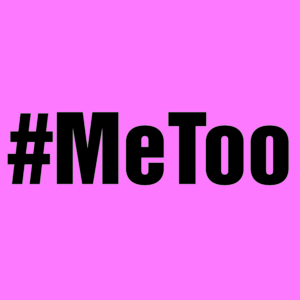#MeToo Movement in Massachusetts
In October 2017 the nation was hit with a movement that was drastically overdue, the #MeToo movement. The movement was a viral sensation in which victims of sexual harassment came forward in droves to proclaim that they too have been victims, many of whom shared their stories in hopes that it would bring attention to sexual harassment and would likewise encourage others who have not reported their sexual harassment to come forward.
One of the most important aspects to the #MeToo movement is letting victims of sexual harassment to know that they are not alone. Too often victims feel as though they will be ostracized and retaliated against for coming forward. The #MeToo movement has brought this issue to the forefront of discrimination and has empowered victims to no longer remain silent.
In Massachusetts, M.G.L. c. 151B operates to make sexual harassment in the workplace unlawful. In general, there are two main areas of sexual harassment, Quid Pro Quo (this for that), and hostile work environment sexual harassment. Quid Pro Quo consists of a person with authority over another using that authority to force the victim into committing sexual acts that they otherwise would not have performed. For example, conditioning a raise or promotion upon the acceptance of sexual advances. Hostile work environment sexual harassment exists when unwanted comments, action and sexual advances exist and cause an interference with one’s ability to perform their job. Both are unlawful and can subject the perpetrators and their employers to various forms of damages.
If you believe that you have been a victim of unlawful sexual harassment it is important that you make a complaint right away. In addition to providing your employer with important information that they may not have been aware of and allowing them to properly address the situation it also helps to establish your perception that the harassment exists. The failure to report allegations of sexual harassment prior to filing a complaint often results in a lack or corroborating evidence and can lead to a dismissal of further actions. If the employer fails to take reasonable steps to curb the unlawful activity the remaining recourse is to file a complaint with MCAD. It is important for victims to know that there is a relatively short window for filing these complaints (300 days from the last act or occurrence), which makes timely reporting of sexual harassment claims of utmost importance.
Whether or not the #MeToo movement has caused victims of sexual harassment to come forward in higher numbers than years past (in Massachusetts) still remains to be seen as the Massachusetts Commission Against Discrimination (MCAD) has not completed the fiscal year of 2018. Over the past three (3) years MCAD has had an average of 271 filed complaints regarding workplace sexual harassment (2017 had 269, 2016 had 266 and 2015 had 279). While the hope is that #MeToo will cause more victims to come forward, the larger hope remains that fewer complaints of sexual harassment exists due to less occurrences taking place.
If you or someone you know has been a victim of sexual harassment and desire a free consultation, the lawyers of Cohen Cleary, P.C. will be happy to speak with you.
Authored by Thomas Cleary, Esq.

